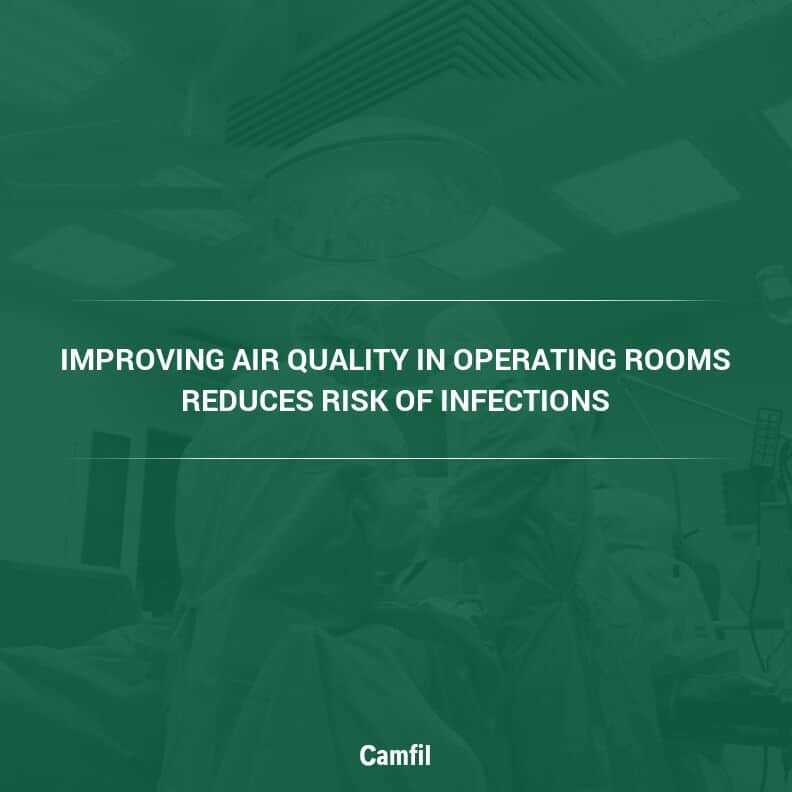
Improving Air Quality in Operating Rooms Reduces Risk of Infections
Proper air ventilation systems equipped with the right filters are crucial in operating rooms to minimize the risk of hospital-acquired infections (HAIs). Read on to learn why and how.
A clean environment is vital for every healthcare facility to prevent and control infections. One major way to ensure this is by managing indoor air quality, which helps in reducing the spread of airborne diseases that can threaten the well-being of patients, staff and visitors.
When people infected with a virus sneeze or cough, they release microbes into the air, which can lead to hospital-acquired infections (HAIs). Shockingly, over 100,000 people die from HAIs every year.
The Centers for Disease Control (CDC) has air quality guidelines for healthcare buildings. ASHRAE has a design standard (Standard 170) devoted solely to ventilation in healthcare facilities.
Different spaces, like patient rooms and pharmacies, have varied requirements. Operating rooms intended for high-risk surgeries have the highest standard of air quality because during these types of surgeries, patients’ organs are often exposed, making them more prone to infections.
Apart from viruses, other pollutants can compromise the sterility of surgical areas:
- Leaked anesthetic gases during procedures
- Dust and smoke particles from medical tools
- Infectious aerosols released during surgeries
- Bacteria from skin scales shed by people in the operating room
Ensuring top-notch air quality is more than just a protocol – it’s a...
Read Full Story: https://cleanair.camfil.us/2023/11/25/improving-air-quality-in-operating-rooms-reduces-risk-of-infections/
Your content is great. However, if any of the content contained herein violates any rights of yours, including those of copyright, please contact us immediately by e-mail at media[@]kissrpr.com.